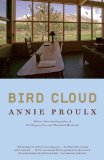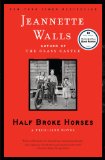Summary | Excerpt | Reviews | Beyond the book | Read-Alikes | Genres & Themes | Author Bio

By turns cattle rancher, forest ranger, outfitter, masseuse, wife and mother, Bell vividly recounts her struggle to find solid earth in which to put down roots.
In 1977, Laura Bell, at loose ends after graduating from college, leaves her family home in Kentucky for a wild and unexpected adventure: herding sheep in Wyoming’s Big Horn Basin. Inexorably drawn to this life of solitude and physical toil, a young woman in a man’s world, she is perhaps the strangest member of this beguiling community of drunks and eccentrics. So begins her unabating search for a place to belong and for the raw materials with which to create a home and family of her own. Yet only through time and distance does she acquire the wisdom that allows her to see the love she lived through and sometimes left behind.
By turns cattle rancher, forest ranger, outfitter, masseuse, wife and mother, Bell vividly recounts her struggle to find solid earth in which to put down roots. Brimming with careful insight and written in a spare, radiant prose, her story is a heart-wrenching ode to the rough, enormous beauty of the Western landscape and the peculiar sweetness of hard labor, to finding oneself even in isolation, to a life formed by nature, and to the redemption of love, whether given or received.
Quietly profound and moving, astonishing in its honesty, in its deep familiarity with country rarely seen so clearly, and in beauties all its own, Claiming Ground is a truly singular memoir.
Rather than looking for the nuances of an individual, readers will take pleasure in seeing how this narrator views the world around her and sets it to prose. Claiming Ground is not the portrait of a woman; it's the portrait of a place... Without the pull of empathy for the narrator, and without a clear idea of what she is seeking with her backcountry solitude and self-imposed exile, it is hard to complete one of the first steps of the intimate memoir genre: getting close to the narrator... The text's natural resistance to weaving a reader-writer relationship, however, also functions metaphorically... Claiming Ground is a richly visual piece of writing that is speckled with clips and images that stick... Each slim, tidy chapter reads like a short story, which increases the text's pace and balances Bell's steady, detailed - almost myopic - writing style...continued
Full Review
 (531 words)
(531 words)
(Reviewed by Elizabeth Whitmore Funk).
Location is integral to Laura Bell's memoir; not only does the land around her serve as a subtle metaphor for her emotions, but it also gives her a complex and compelling backdrop for her narrative. Though Bell's memoir stretches across the state of Wyoming, the majority of her story is concentrated in and around the Absaroka-Beartooth Wilderness in northern Wyoming, adjacent to Yellowstone National Park.
 The Beartooth and Absaroka mountain ranges are often thought of as similar in appearance, but both ranges have a distinct aesthetic that Bell explores in Claiming Ground. The Beartooths, which are slightly higher in elevation than the Absarokas and contain Montana's highest peak, are dominated by craggy granite cliffs, lakes, and ...
The Beartooth and Absaroka mountain ranges are often thought of as similar in appearance, but both ranges have a distinct aesthetic that Bell explores in Claiming Ground. The Beartooths, which are slightly higher in elevation than the Absarokas and contain Montana's highest peak, are dominated by craggy granite cliffs, lakes, and ...

If you liked Claiming Ground, try these:

by Annie Proulx
Published 2011
Proulx's first work of nonfiction in more than twenty years, Bird Cloud is the story of designing and constructing her dream house. It is also an enthralling natural history and archaeology of the region, and a family history, going back to nineteenth-century Mississippi riverboat captains and Canadian settlers.

by Jeannette Walls
Published 2010
Jeannette Walls's memoir The Glass Castle was "nothing short of spectacular" (Entertainment Weekly). Now, in Half Broke Horses, she brings us the story of her grandmother, told in a first-person voice that is authentic, irresistible, and triumphant.